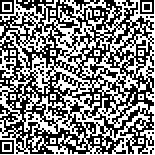本文已被:浏览 35次 下载 18次
投稿时间:2024-09-10 网络发布日期:2025-03-20
投稿时间:2024-09-10 网络发布日期:2025-03-20
中文摘要: 目的 以柯氏模型为基础,构建远程援疆医学教育效果评价体系,旨在促进新疆地区临床医师综合能力提升。方法通过文献研究,采用德尔菲法进行两轮专家函询,运用层次分析法计算指标权重,筛选并建立评价指标体系。结果构建的妇幼医学教育效果评价指标体系共包含4个一级指标,8个二级指标,16个三级指标,22个四级指标。结论本研究构建的远程医学教育效果评价体系符合科学要求,可作为远程援疆医学教育效果的评价工具。
Abstract:Objective To construct an evaluation system for remote aid-to-Xinjiang medical education based on the Ke model, with the goal of enhancing the comprehensive capabilities of clinicians in Xinjiang. Methods Through literature research and utilizing the Delphi method for two rounds of expert consultations, the hierarchical analysis method was employed to calculate the index weights. This process facilitate the screening and establishment of the evaluation index system. Results The constructed evaluation index system for maternal and child medical education comprises 4 primary indicators, 8 secondary indicators, 16 tertiary indicators, and 22 quaternary indicators. Conclusion The remote medical education effect evaluation system developed in this study meets scientific requirements and can serve as a tool for assessing the impact of remote medical aid-to-Xinjiang medical education.
文章编号: 中图分类号:R4 G642 文献标志码:A
基金项目:江苏省财政厅医学教育专项基金(JX-102C-2022012);江苏省第六期“333工程”科研资助项目;江苏省医院协会管理创新课题(JSYGY-32023-367)
附件
引用文本:
曹郡,殷咏梅,朱卫华,等.构建远程援疆医学教育效果评价体系提升临床诊疗和研究能力[J].中国临床研究,2025,38(3):470-473.
曹郡,殷咏梅,朱卫华,等.构建远程援疆医学教育效果评价体系提升临床诊疗和研究能力[J].中国临床研究,2025,38(3):470-473.
